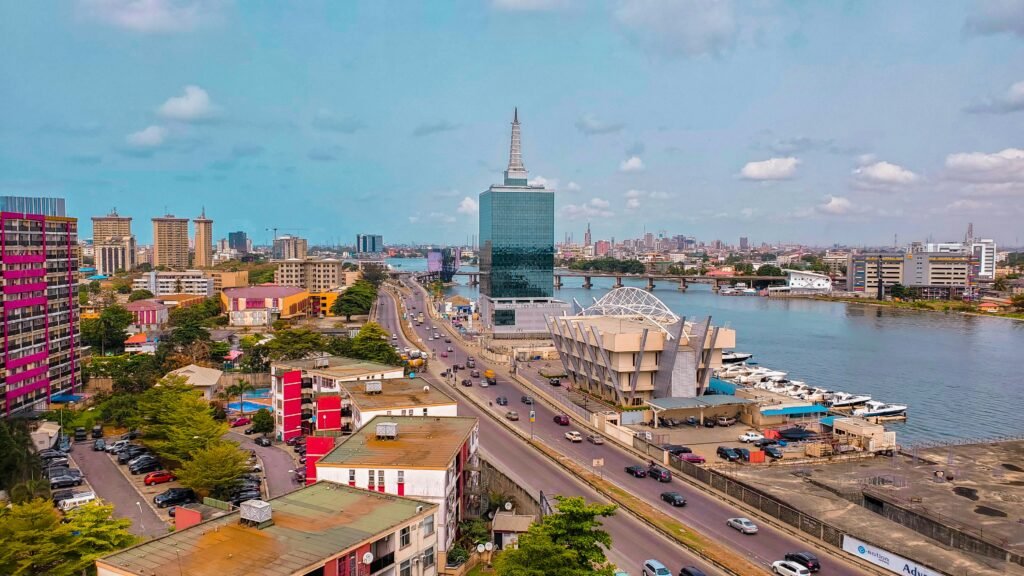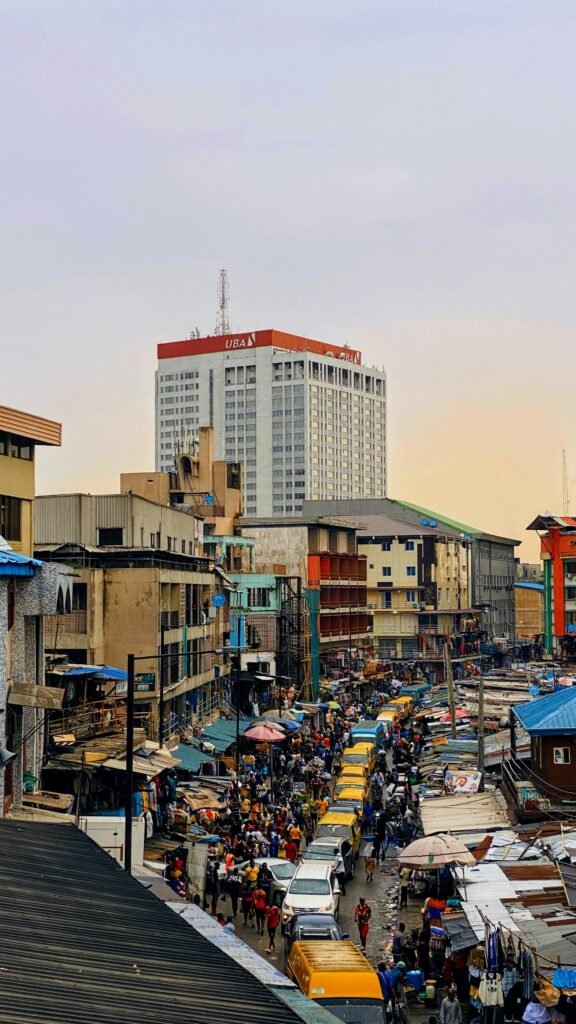News
The Soul Hackers: AI’s Controversial Bid to Reprogram Criminals
In a bold and contentious move, the criminal justice system is exploring the use of artificial intelligence to fundamentally alter the rehabilitation process for offenders. This futuristic concept, dubbed “Cognify,” proposes to use AI and neurotechnology to implant artificial memories into criminals’ brains, potentially reducing years of incarceration to mere minutes of intensive mental reprogramming.
The Cognify system, developed by biotechnologist Hashem Al-Ghaili, aims to address the pressing issues plaguing the current prison system. With over 1.7 million people incarcerated in the United States alone, the need for innovative solutions is clear. The U.S. spends approximately $80 billion annually on incarceration, yet recidivism rates remain stubbornly high, with about 44% of released inmates returning to prison within the first year.
Here’s how Cognify proposes to work:
1. High-resolution brain scans map the neural pathways of offenders.
2. AI generates personalized, vivid artificial memories based on the individual’s crime and psychological profile.
3. These memories are implanted using a VR-like device and brain implants, targeting specific regions such as the anterior cingulate cortex, amygdala, and hippocampus.
4. The process manipulates time perception, making minutes feel like years to the offender.
5. Artificial memories aim to trigger empathy, remorse, and understanding of long-term consequences.
Proponents argue that this technology could revolutionize criminal rehabilitation. Traditional incarceration costs an average of $31,000 per inmate per year in the U.S. In contrast, if Cognify proves effective, it could dramatically reduce these costs while potentially lowering recidivism rates.
However, the ethical implications are profound. Critics argue that this approach amounts to a form of mind control, raising serious questions about personal autonomy, consent, and the very nature of punishment and rehabilitation. There are also concerns about the long-term psychological effects of such intense mental manipulation.
The American Civil Liberties Union (ACLU) has expressed grave concerns, with a spokesperson stating, “This technology treads dangerously close to violating the Eighth Amendment’s prohibition on cruel and unusual punishment. It’s not just about physical confinement anymore; we’re talking about invading and altering the very essence of a person’s mind.”
Neuroscientists are divided on the feasibility and ethics of the technology. Dr. Sarah Chen, a leading neuroscientist at MIT, cautions, “While the concept is intriguing, our understanding of memory formation and manipulation is still in its infancy. The risk of unintended consequences is enormous.”
As the debate rages on, pilot studies are being proposed in several states. If implemented, Cognify would first be offered as a voluntary alternative to traditional incarceration for non-violent offenders. Initial projections suggest that if even 20% of eligible inmates opted for this program, it could save the U.S. correctional system over $3 billion annually.
The concept of Cognify represents a radical departure from traditional approaches to criminal justice. As we stand on the brink of this potential revolution, society must grapple with fundamental questions about justice, rehabilitation, and the limits of technological intervention in the human mind. The soul hackers may be poised to rewrite the book on criminal reform, but at what cost to our collective humanity?
Stay Connected
Unlock impactful advertising opportunities with Bolanle Media. Our expert team crafts immersive experiences that captivate audiences, driving brand engagement and memorability. Let’s elevate your brand’s marketing strategy together.
News
Protests Erupt During Ventura County Immigration Raid

Federal agents conducting an immigration enforcement operation at Glass House Farms, a major cannabis cultivation site near Camarillo, Ventura County, were met by a large crowd of protesters on Thursday. The raid, which involved officers from Immigration and Customs Enforcement (ICE), U.S. Border Patrol, and reportedly the National Guard, quickly escalated into a chaotic confrontation that drew national attention.

Details of the Operation
- Targeted Facility:
The operation focused on Glass House Farms, billed as the world’s largest cannabis growing operation, employing hundreds of workers. Federal agents served warrants on allegations of hiring and harboring undocumented workers. - Scale of the Raid:
The enforcement action unfolded along Laguna Road, with aerial footage showing dozens of agents forming a line across the street and blocking access to the facility. Military-style vehicles and a helicopter were also seen at the scene.
Clashes With Protesters
- Protest Erupts:
As news of the raid spread, hundreds of demonstrators—many with family members working at the farm—gathered outside the facility. Protesters faced off with heavily armed agents, some of whom wore helmets and gas masks.
- Use of Force:
Tensions escalated when agents deployed tear gas, smoke canisters, and less-than-lethal rounds to disperse the crowd. Protesters reportedly threw rocks and other objects in response. Several people were seen being detained, and at least one person was taken away on a stretcher. - Medical Response:
The Ventura County Fire Department confirmed that paramedics transported four people to the hospital and treated several others at the scene for injuries related to the use of tear gas and crowd-control munitions.

Community Impact and Reactions
- Worker Detentions:
Dozens of farmworkers were reportedly apprehended and loaded onto buses. Some witnesses described seeing workers and even U.S. citizens detained by federal agents. - Personal Stories:
Family members anxiously searched for loved ones, with some reporting they had lost contact with relatives working in the fields during the raid. One protester described being hit with a paintball and tear-gassed while trying to speak out. - Political and Community Response:
Local officials and immigrant rights groups condemned the raid, highlighting the fear and disruption caused within the agricultural community. California Assemblymember Jacqui Irwin called the militarized operation “heartbreaking,” emphasizing the essential role of farmworkers in the state’s economy.
Broader Context
- Policy Shifts:
The raid is part of a broader increase in federal immigration enforcement actions across Southern California, targeting farms, car washes, and other workplaces. The Trump administration has sent mixed signals on the issue, with recent reversals on enforcement priorities and ongoing debate over the future of undocumented farmworkers. - Ongoing Investigation:
The FBI is investigating reports that a protester fired a handgun at agents during the confrontation. No injuries from gunfire were reported, but authorities are offering a reward for information leading to a conviction.

Key Facts Table
| Event Detail | Description |
|---|---|
| Date of Raid | July 10, 2025 |
| Location | Glass House Farms, Camarillo, Ventura County |
| Agencies Involved | ICE, Border Patrol, National Guard |
| Protester Response | Tear gas, smoke canisters, less-lethal rounds used |
| Detentions | Dozens of workers detained, unclear total number |
| Injuries | At least 4 hospitalized, several treated on scene |
| Community Impact | Fear, disruption, family separation |
| Ongoing Investigation | FBI probing alleged gunfire at agents |
Conclusion
The immigration raid at Glass House Farms in Ventura County has become a flashpoint in the national debate over immigration enforcement and farm labor. The confrontation between federal agents and protesters underscores the deep divisions and anxieties within communities that rely on undocumented workers, as well as the challenges facing both law enforcement and advocates in a rapidly shifting policy landscape.
News
Dozens Trapped, All Rescued: Tunnel Collapse Shakes Los Angeles

Los Angeles, CA — On Wednesday night, a routine shift turned harrowing for 31 construction workers deep beneath the streets of Wilmington, Los Angeles. A massive industrial tunnel, part of a municipal wastewater project, partially collapsed, trapping the workers nearly 400 feet underground and up to six miles from the tunnel’s only access point.

The Collapse
- Time & Place: The incident occurred around 8 p.m. in the Wilmington neighborhood, where crews were operating a tunnel boring machine for a $700 million infrastructure project.
- Depth & Distance: Workers were located between five and six miles from the sole entry shaft, making rescue efforts especially challenging.
- Immediate Danger: An avalanche of loose soil, estimated at 12 to 15 feet high, blocked the only route out, leaving the crew stranded in a confined, unstable environment.
The Rescue Operation
- Rapid Response: Over 100 Los Angeles Fire Department personnel, including Urban Search and Rescue teams trained for confined-space emergencies, rushed to the scene.
- Escape and Extraction: Some workers managed to climb over the debris to reach colleagues on the other side. Rescue teams used tunnel vehicles to shuttle small groups back to the access point, while others were hoisted to safety by crane.
- No Major Injuries: Miraculously, all 31 workers were rescued without visible injuries. Paramedics evaluated the crew as a precaution, but no one required hospitalization.
Emotional Reunions and Official Response
- Family Relief: Above ground, families waited anxiously for news. “It was sad and scary. We feared the worst,” said Arally Orozco, whose three brothers were among the trapped workers. Relief swept through the crowd as each worker emerged safely.
- City Leaders React: Los Angeles Mayor Karen Bass met with the rescued workers and praised the first responders, calling them “LA’s true heroes.” City officials described the outcome as a “victory” and a blessing, given the initial fears of tragedy.
The Bigger Picture: LA’s Hidden Underground
Los Angeles is famous for its sprawling freeways and sunny skyline, but beneath the city lies a vast network of tunnels—some historic, some modern. From Prohibition-era bootlegger routes to abandoned subway lines and current infrastructure projects, these subterranean passages are a little-known but vital part of LA’s story.

While Wednesday’s incident ended safely, it highlights the risks faced by those who work beneath the city and the importance of robust safety protocols for underground construction.
Table: Key Facts About the Wilmington Tunnel Collapse
| Fact | Detail |
|---|---|
| Date/Time | July 9, 2025, ~8 p.m. |
| Location | Wilmington, Los Angeles |
| Number Trapped | 31 workers |
| Depth | ~400 feet below ground |
| Distance from Entry | 5–6 miles |
| Cause | Partial collapse, loose soil |
| Rescue Teams | 100+ LAFD responders, Urban Search and Rescue |
| Outcome | All rescued, no major injuries |
Looking Ahead
Authorities are investigating the cause of the collapse and have paused work on the project. For now, the successful rescue stands as a testament to the skill and bravery of LA’s emergency responders—and a reminder of the hidden dangers beneath the city’s surface.
Business
U.S. Limits Nigerian Non-Immigrant Visas to Three-Month Validity

In July 2025, the United States implemented significant changes to its visa policy for Nigerian citizens, restricting most non-immigrant and non-diplomatic visas to a single entry and a maximum validity of three months. This marks a departure from previous policies that allowed for multiple entries and longer stays, and has important implications for travel, business, and diplomatic relations between the two countries.

Key Changes in U.S. Visa Policy for Nigerians
- Single-Entry, Three-Month Limit: As of July 8, 2025, most non-immigrant visas issued to Nigerians are now valid for only one entry and up to three months.
- No Retroactive Impact: Visas issued prior to this date remain valid under their original terms.
- Reciprocity Principle: The U.S. cited alignment with Nigeria’s own visa policies for U.S. citizens as the basis for these changes.
- Enhanced Security Screening: Applicants are required to make their social media accounts public for vetting, and are subject to increased scrutiny for any signs of hostility toward U.S. institutions.

Rationale Behind the Policy Shift
- Security and Immigration Integrity: The U.S. government stated the changes are intended to safeguard the immigration system and meet global security standards.
- Diplomatic Reciprocity: These restrictions mirror the limitations Nigeria imposes on U.S. travelers, emphasizing the principle of fairness in international visa agreements.
- Potential for Further Action: The U.S. has indicated that additional travel restrictions could be introduced if Nigeria does not address certain diplomatic and security concerns.

Nigeria’s Updated Visa Policy
- Nigeria Visa Policy 2025 (NVP 2025): Introduced in May 2025, this policy features a new e-Visa system for short visits and reorganizes visa categories:
- Short Visit Visas (e-Visa): For business or tourism, valid up to three months, non-renewable, processed digitally within 48 hours.
- Temporary Residence Visas: For employment or study, valid up to two years.
- Permanent Residence Visas: For investors, retirees, and highly skilled individuals.
- Visa Exemptions: ECOWAS citizens and certain diplomatic passport holders remain exempt.
- Reciprocal Restrictions: Most short-stay and business visas for U.S. citizens are single-entry and short-term, reflecting reciprocal treatment.

Impact on Travelers and Bilateral Relations
- Nigerian Travelers: Face increased administrative requirements, higher costs, and reduced travel flexibility to the U.S.
- U.S. Travelers to Nigeria: Encounter similar restrictions, with most visas limited to single entry and short duration.
- Diplomatic Tensions: Nigerian officials have called for reconsideration of the U.S. policy, warning of negative effects on bilateral ties and people-to-people exchanges.
Conclusion
The U.S. decision to limit Nigerian non-immigrant visas to three months highlights the growing complexity and reciprocity in global visa regimes. Both countries are tightening their policies, citing security and fairness, which underscores the need for travelers and businesses to stay informed and adapt to evolving requirements.

 Business1 week ago
Business1 week agoPros and Cons of the Big Beautiful Bill

 Advice2 weeks ago
Advice2 weeks agoWhat SXSW 2025 Filmmakers Want Every New Director to Know

 Film Industry3 weeks ago
Film Industry3 weeks agoFilming Yourself and Look Cinematic

 News2 weeks ago
News2 weeks agoFather Leaps Overboard to Save Daughter on Disney Dream Cruise

 Politics4 weeks ago
Politics4 weeks agoBolanle Newsroom Brief: Israel Strikes Iran’s Nuclear Sites — What It Means for the World

 Health1 week ago
Health1 week agoMcCullough Alleges Government Hid COVID Vaccine Side Effects

 Advice2 weeks ago
Advice2 weeks agoWhy 20% of Us Are Always Late

 Entertainment4 weeks ago
Entertainment4 weeks agoThe Hidden Reality Behind Victoria’s Secret









































